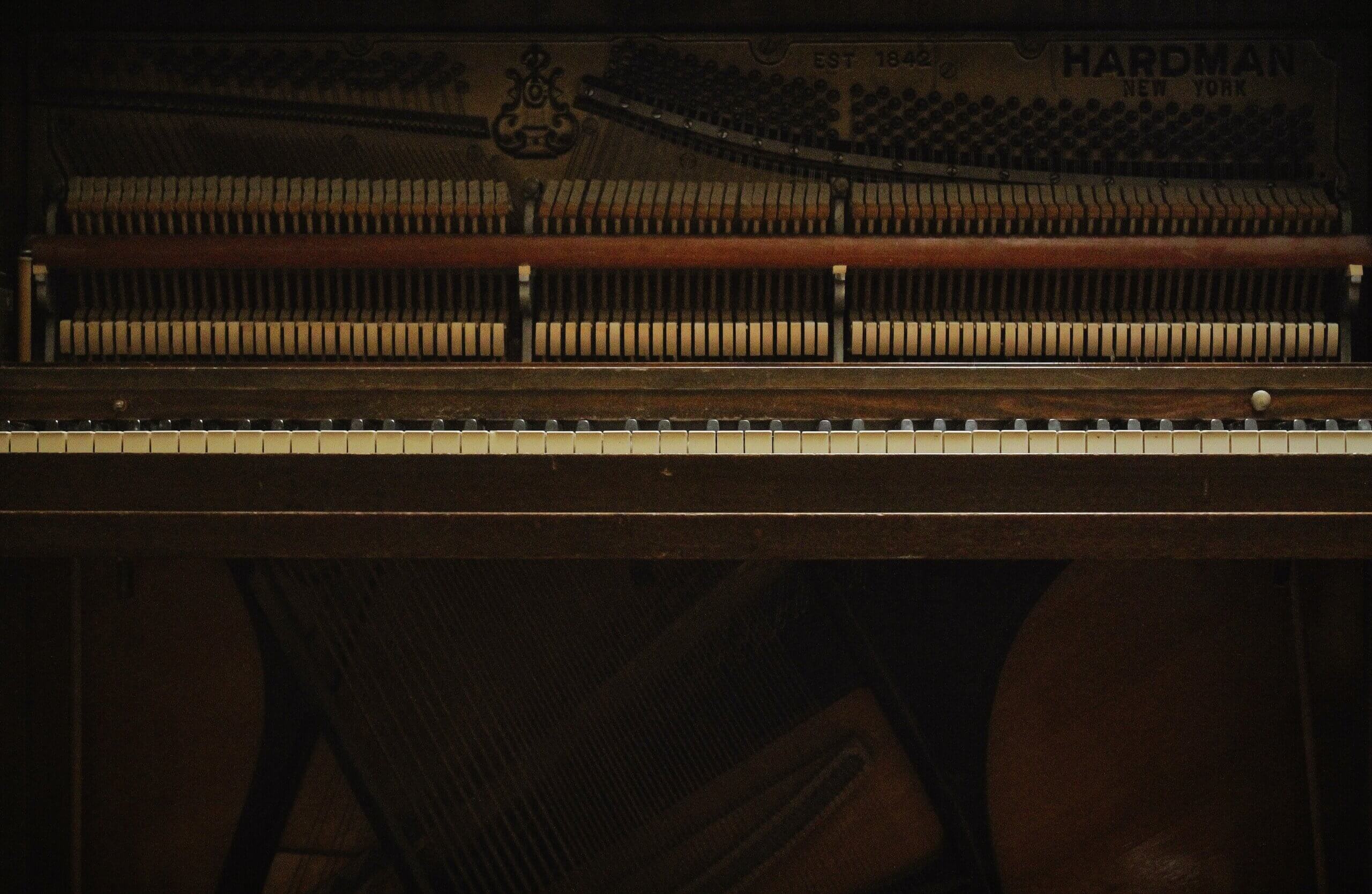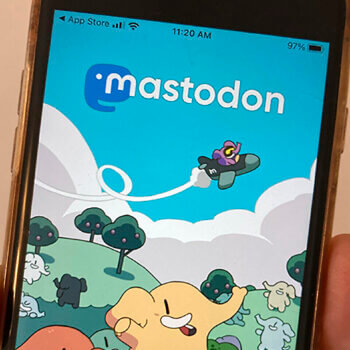Key Takeaways:
- Pianos still proliferate in music schools, despite predictions about the decline of acoustic music.
- It is a sad fact, though, that homes can be hard to find for old pianos, especially uprights.
- Partly, this is due to their ubiquity in earlier generations.
- It used to be the case that every home had an old piano, often passed down through family lines.
- Shiny, relatively new and still receptive to many hours of rigorous playing, the piano’s owner was happy to give it away.
- In a world which seems increasingly weighted toward the quantifiable, the measured, and the physically real, music still can catch us in its sway.
Pianos still proliferate in music schools, despite predictions about the decline of acoustic music. Instruments that are used day-to-day need to be relatively new and in excellent working order.
Given the rate at which they are played in busy schools, they are typically replaced every 10 to 15 years.
Many pianists view pianos like tools, as vehicles for musical expression. Like a driver searching for a faster car, less responsive models can be dispensed with little thought.
Unlike an immaculately handcrafted violin from the 17th century, the sound of a piano typically does not improve with age.
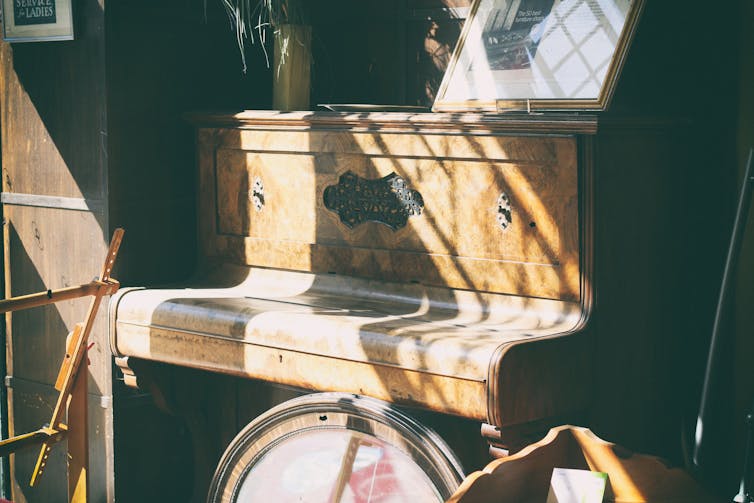
Yet there is much that a piano student can learn from older instruments. Our collection includes a French piano built around 1770, and it can still sing if gently coaxed. As my fingers negotiate the uneven and primitive collection of levers, shafts and felts that comprise its inner action, I wonder how many musicians long-departed have listened to its voice.
It is a sad fact, though, that homes can be hard to find for old pianos, especially uprights.
While grand pianos still signify status, and square pianos have a curiosity value (also doubling as small tables), upright pianos of the Victorian era are now unloved.
According to a local piano removal company, two to three upright pianos from this period can be delivered to landfill in any week. Partly, this is due to their ubiquity in earlier generations. It used to be the case that every home had an old piano, often passed down through family lines.
Frequently of German origin and built on massive solid frames, these instruments are not timeless. Their mechanisms wear out, their felts become infested and their tuning blocks lose structural integrity. They can no longer hold their tune.
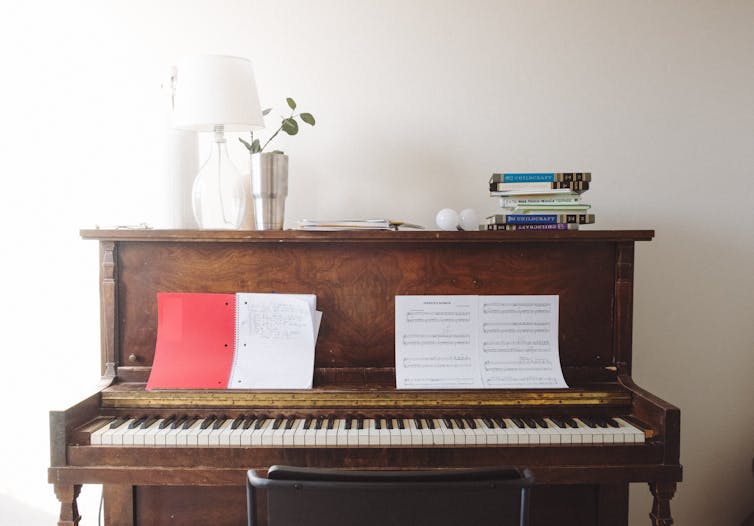
If you paid to restore one, the sum would be greater than the cheap new instrument which would always outperform it. The worst thing to do would be to buy a dilapidated piano for a budding student, who might presume the clunking responses to be a sign of talent-less activity.
Yet it is sometimes as if these old pianos have souls. It tugs at the heartstrings to see an instrument that has weathered over a century of faithful service get carted to the tip, or “piano heaven” as insiders say. Often there are rich memories, such as when grandma played and the family gathered around in song.
Members of the family
The inner connections people make with musical instruments are widely known. Indeed, pianos can seem like members of a family to some. How do we account for this unusual anthropomorphism?
I was recently touched by a story of an elderly lady, an exceptionally fine pianist and teacher in her day. She had purchased a large grand piano of Viennese design, a concert instrument of the highest order, but was now at the point of moving to residential care.
Of all the considerations that beset her family at this difficult time, finding a “home” for the instrument was of the highest concern. It was more than just a piano: it was a living part of her life.
In another instance, I was asked to help rehouse an upright piano. Shiny, relatively new and still receptive to many hours of rigorous playing, the piano’s owner was happy to give it away. But not to just anyone – it needed to be the right person.
“I will always be grateful for the beautiful black piano that became a vehicle not only for my lifetime wish to learn to play, but also to make music with my son”, she wrote.
“My longing to make music with him was fulfilled before he finished school and left home.”
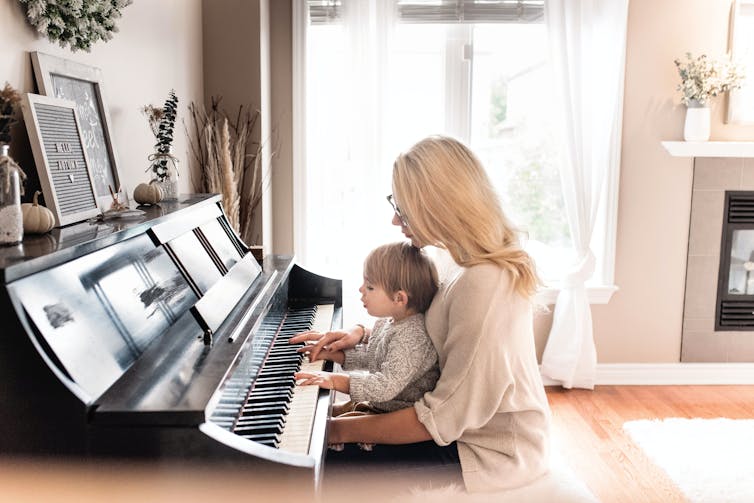
It’s easy to see why pianos are often more than a piece of furniture. They can embody the dreams and memories that propel us through life, sanctifying the moments in which we are united through beauty and art.
In a world which seems increasingly weighted toward the quantifiable, the measured, and the physically real, music still can catch us in its sway.
Through the process of reordering our collection, one instrument has remained. In all respects, it is neither unique nor outwardly special. Yet it carried a plaque, in loving memory of someone’s mother.
Perhaps it’s because her song still resonates within, I’ve made no plan to remove it.
